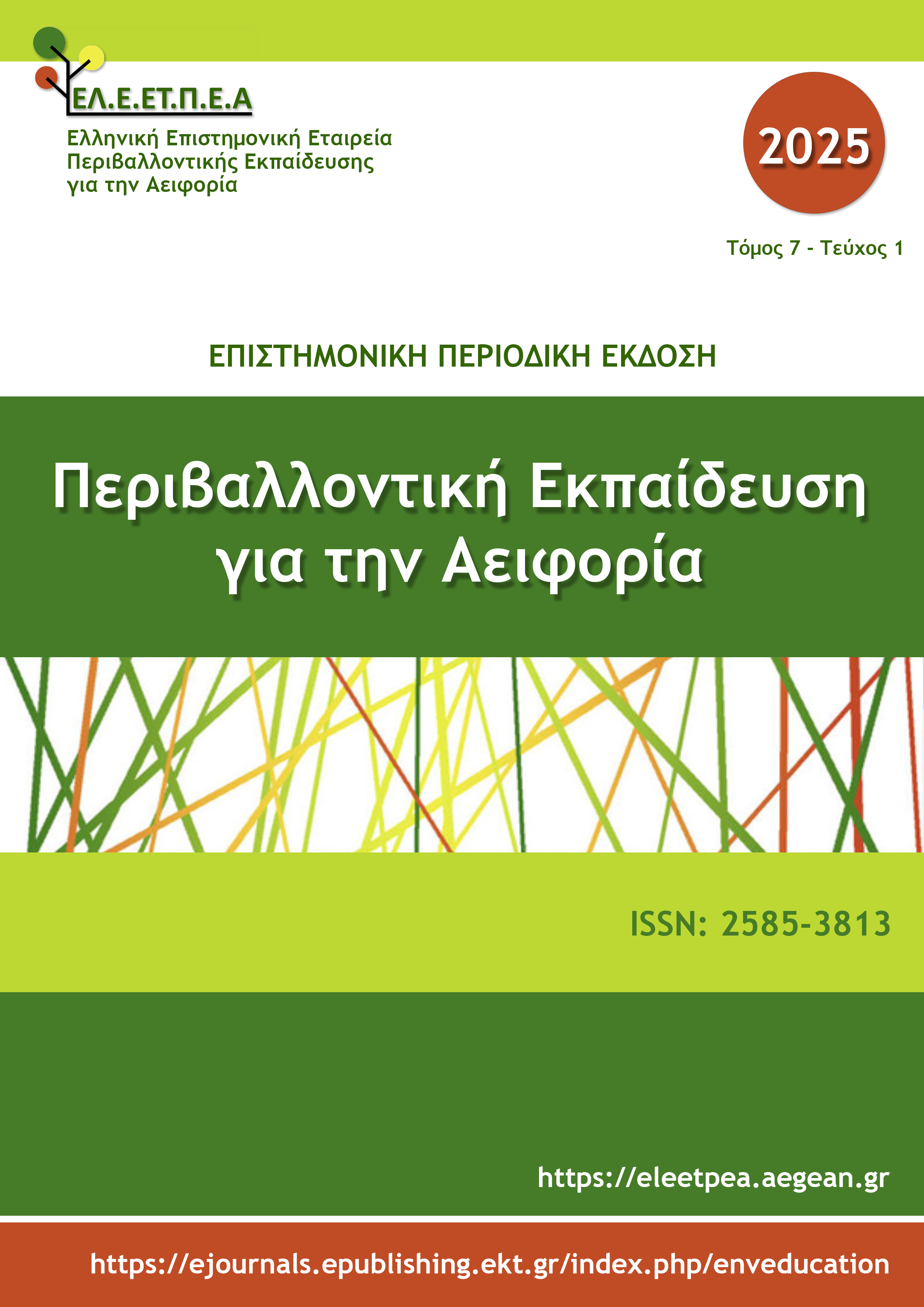Συμπεριληπτική Μάθηση στο σχολείο του Δάσους: Μια Εμπειρική Μελέτη σε ένα Αγγλικό Δημοτικό Σχολείο
Resumen
Το παρόν άρθρο διερευνά την αποτελεσματικότητα του Σχολείου του Δάσους (ΣτΔ) ως παιδαγωγικής προσέγγισης που ενισχύει τη συμπεριληπτική εκπαίδευση σε σχολικά πλαίσια γενικής εκπαίδευσης. Εστιάζοντας σε ένα δημοτικό σχολείο στην Αγγλία, η μελέτη εξετάζει πώς το ΣτΔ επηρεάζει τη συμμετοχή και τη μαθησιακή εμπειρία μαθητών της Γ΄ και Δ΄ τάξης (Year 3 and 4), με ιδιαίτερη έμφαση στους μαθητές με ειδικές εκπαιδευτικές ανάγκες και αναπηρίες (ΕΕΑΑ). Υιοθετείται μικτή μεθοδολογική προσέγγιση, η οποία περιλαμβάνει παρατήρηση με χρήση Κλίμακας Δραστηριοποίησης (Leuven Scale of Involvement), ερωτηματολόγια για να συλλέξει δεδομένα από τους γονείς και ημιδομημένες συνεντεύξεις με εκπαιδευτικούς. Τα ευρήματα δείχνουν σταθερά υψηλότερα επίπεδα δραστηριοποίησης των μαθητών στις συνεδρίες ΣτΔ, οι οποίες κρίνονται ιδιαίτερα ωφέλιμες για μαθητές με ΕΕΑΑ. Αναδεικνύονται, επίσης, σημαντικά κοινωνικά και συναισθηματικά οφέλη, ενώ τονίζεται η ανάγκη ενσωμάτωσης βιωματικών, υπαίθριων δραστηριοτήτων στα τυπικά αναλυτικά προγράμματα. Η παρούσα μελέτη συμβάλλει στη συζήτηση για τη συμπεριληπτική παιδαγωγική, προτείνοντας το ΣτΔ ως ένα δυναμικό μοντέλο που ενισχύει τη συμμετοχή των μαθητών στη μαθησιακή διαδικασία.
Article Details
- Cómo citar
-
Σταυριανός Α. (2025). Συμπεριληπτική Μάθηση στο σχολείο του Δάσους: Μια Εμπειρική Μελέτη σε ένα Αγγλικό Δημοτικό Σχολείο. Περιβαλλοντική Εκπαίδευση για την Αειφορία, 7(1), 42–56. https://doi.org/10.12681/ees.40920
- Sección
- Articles

Esta obra está bajo una licencia internacional Creative Commons Atribución-NoComercial-CompartirIgual 4.0.
Οι συγγραφείς διατηρούν τα πνευματικά δικαιώματα και παρέχουν στο περιοδικό το δικαίωμα της πρώτης δημοσίευσης μαζί με την αδειοδότηση της εργασίας με CC-BY-NC-SA, που επιτρέπει σε άλλους να μοιράζονται αυτή την εργασία με αναγνώριση του συγγραφικού δικαιώματος και την αρχική δημοσίευση σε αυτό το περιοδικό.



